5 February 2024 –
With support from the UNCAC Coalition, civil society in Paraguay is involved in analyzing, monitoring and strengthening the national political financing framework.
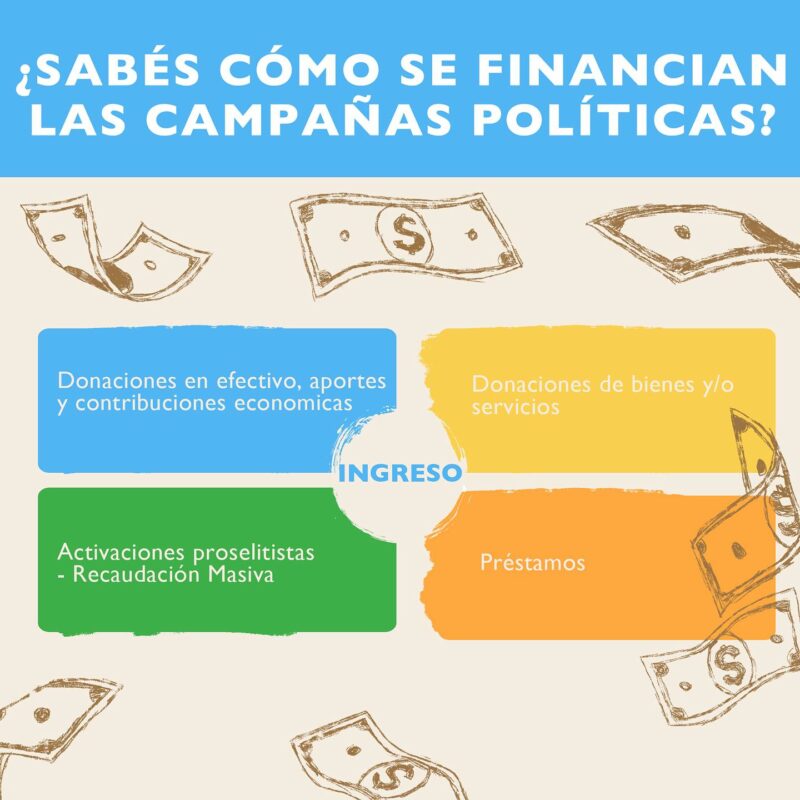
How are civil society voices making a difference in the fight against corruption? Stories like this one from our member organization in Paraguay are one way we can measure impact.
While much of our work as a Coalition is internationally focused, having an impact at a national level is a top priority as an organization dedicated to fighting corruption. Our priority is to strengthen the implementation of the UN Convention against Corruption (UNCAC) around the world.
The legal framework on political financing is being strengthened, thanks in part to Semillas para la Democracia (Semillas), a civil society member organization of the UNCAC Coalition. After holding numerous advocacy meetings where they presented their mapping report of the current legal framework and recommendations for improvement, Semillas managed to coordinate both inter-institutional roundtables and mobilize civil society to advocate for more transparency and accountability in political financing, strengthen cooperation between institutions and mobilize civil society for a joint statement against the abolition of the National Anti-Corruption Secretariat, which helped to temporarily halt the abolition.
These efforts are part of an initiative from the UNCAC Coalition, funding civil society organizations to act on recommendations they developed producing a civil society parallel report on UNCAC implementation. This initiative enables our members and affiliates to advocate for reforms in their countries. See other examples here.
In analyzing the implementation and compliance (or lack thereof) of the UNCAC in Paraguay, Semillas para la Democracia identified key areas for improvement. The research informed the development of a civil society parallel report with the UNCAC Coalition’s support, to provide a civil society perspective to accompany the government’s own report on compliance with the Convention. Semillas’s parallel report was published in November 2021 and contained detailed recommendations to address gaps in the legal framework and promote actual implementation on the ground. In May of 2023, the organization began follow-up activities to promote key recommendations laid out in the report.
Goals of the project
Drawing on its analysis of the state of anti-corruption and UNCAC implementation in Paraguay, Semillas set out to promote good governance, transparency and accountability through three key objectives:
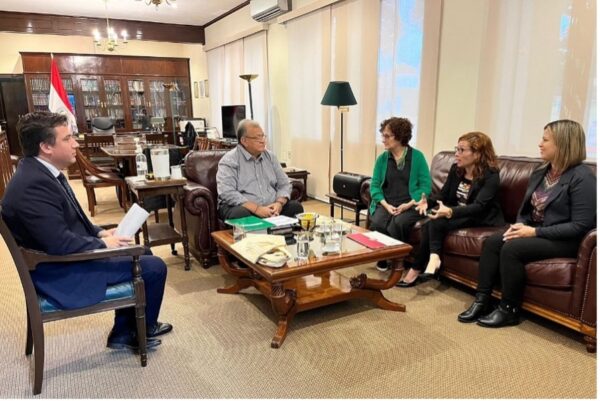
- Monitor developments in the legal framework on political financing and develop recommendations for improvements. In the current Paraguayan political context, there is growing interference from corruption and organized crime groups in elections and politics in general, a worrying trend since it implies a deterioration in the quality of political representation. The results of the 2023 elections reflect an increase in cases of politicians and public authorities linked to corruption, drug trafficking, money laundering and organized crime.
- Advocate for greater compliance with political financing laws 4743/2012 and 6501/2020 and improvements in the political financing framework through meetings with relevant stakeholders, including public institutions, parliamentary representatives of political parties and civil society stakeholders.
- Advocate for improved inter-institutional coordination between the Superior Tribunal of Electoral Justice (TSJE), the Secretariat for the Prevention of Money or Asset Laundering (SEPRELAD), the National Anti-Corruption Secretariat (SENAC) and the Public Prosecutor’s Office. After the Presidential elections in April 2023, mistrust towards the TSJE rose, as it received strong criticism for the first time on a massive scale by citizens and political parties, mainly in the process of proclaiming the results of the Presidential elections and elected candidates. Civil society organizations (CSOs), the public, professional groups, and others requested audits of the voting ballots, and filed many complaints in the electronic voting system software.
Advocacy activities
To build support for these issues, Semillas:
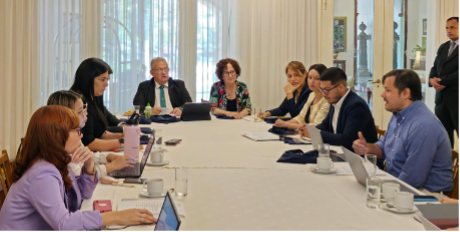
- Monitored the implementation of the Political Financing Law , resulting in an analytical report containing recommendations on the effective application of the political financing law, with emphasis on access to public information, the functioning of Technical Unit of Political Financing of the Tribunal of Electoral Justice (TSJE) and the National Observatory of Political Financing (ONAFIP).
- Held numerous advocacy meetings with key stakeholders to discuss and gather support for the recommendations for a stronger framework of political financing in Paraguay, including with governmental and public bodies, such as the TSJE, the Secretariat for the Prevention of Money Laundering and Asset Laundering (SEPRELAD), National Anti-Corruption Secretariat (SENAC); Public Prosecutor’s Office and State Attorney General (FGE), as well as with parliamentary representatives of both the ruling party and political opposition and civil society organizations,
- Coordinated two roundtables: an interinstitutional roundtable to comprehensively address the challenges of political financing, the necessary reforms and develop effective strategies to prevent and mitigate any negative influence on a transparent and democratic electoral process, and a roundtable between civil society and the Superior Court of Electoral Justice, in order to address the recommendations of the European Union Observation Mission 2023 on political financing.
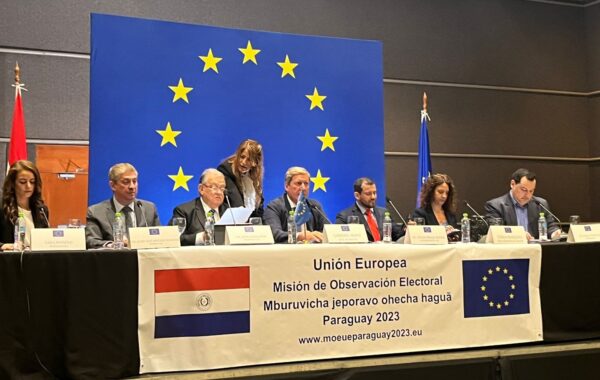
Success and results
During the months of July and August 2023, President Santiago Peña announced important changes in the government, as part of a policy of State downsizing, proposing the merger of several ministries into one and the abolition of the SENAC. These developments impacted the project. Nevertheless, through their outreach and advocacy activities, Semillas implemented their recommendations and successfully advanced anti-corruption measures in Paraguay by:
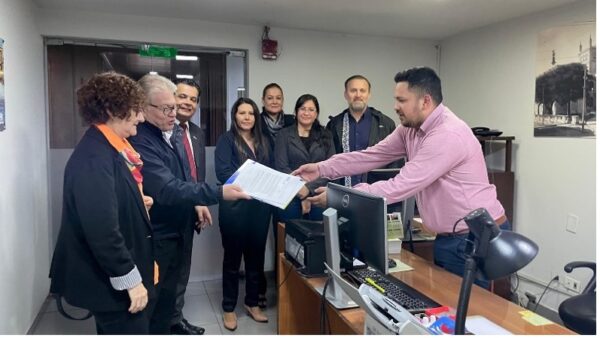
- Gathering support for their recommendations and strengthened the framework of political financing in Paraguay as well as multi-stakeholder coordination and exchange of ideas, through the signing of an inter-institutional agreement between the Secretariat for the Prevention of Money or Asset Laundering (SEPRELAD) and the National Anti-Corruption Secretariat (SENAC) which aims to increase oversight, investigations and sanctions for irregular money flows in political campaigns, and a joint civil society declaration.
- Mobilizing civil society for a joint statement against the abolition of the National Anti-Corruption Secretariat, which helped to temporarily halt the abolition.
- Advocating for the implementation of the Political Financing Law through a report (available in Spanish and English) indicating targeted recommendations, including enforcing sanctions for non-compliance; adding missing information to the ONAFIP portal such as the real campaign expenses and results of forensic audits thereof, publishing data in open data format rather than as a PDF, to allow for better usability, searchability and monitoring by other institutions, civil society and the media; and cross-reference the data with other institutions’ databases for better detection of corruption offenses.
Next steps
While Semillas’s follow-up activities helped strengthen inter-institutional coordination and mobilized civil society organizations around a common cause, more efforts are needed to ensure robust implementation and enforcement of Paraguay’s political financing framework. Semillas will continue to mobilize stakeholders to promote their recommendations and further strengthen political finance transparency in Paraguay.



